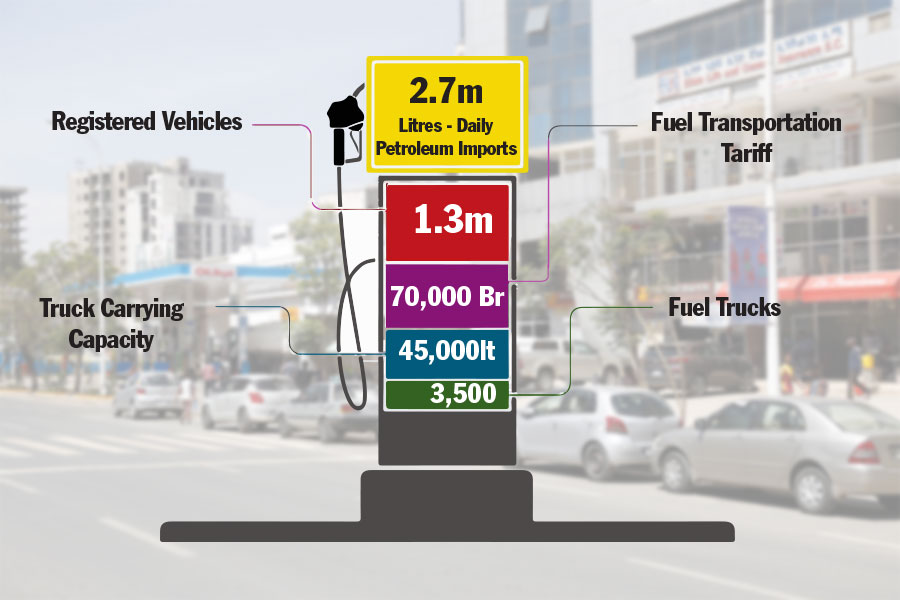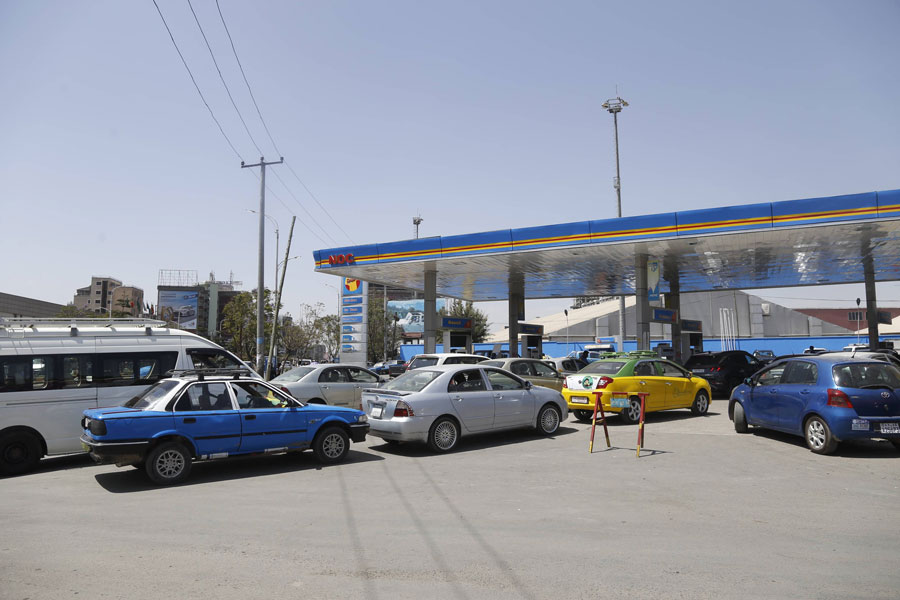
Fortune News | Feb 12,2022
Dec 19 , 2018
By Asseged G. Medhin
No state can be peaceful and prosperous unless what constitutes it is progressive and stable. Ethiopia is no different.
Its subsequent leaders' ultimate goal was to transform it into a developed country but without the foresight to consider that their political and economic policies would either not suffice or be unaccepted by the citizenry.
Indeed, the nation still has a great potential to become a middle-income country with a vast skilled labour force that actively participates in the industrial and information technology sub-sectors. And perhaps, two decades from now, we would be looking at this juncture in history as a period that laid the ground for the inclusive economic and political foundation necessary to launch the country into the next stage of development.
But this could only occur if the nation can split away from the policies it has followed for the past decades, which have not done enough to ensure that political and economic institutions are inclusive. From the macroeconomy to local government administrations, the country is facing mountainous challenges.
There is some hope with the current political leadership of the country, led by Prime Minister Abiy Ahmed (PhD). Promising reforms on the political and economic fronts have been observed. Discussions are being had on how democratic institutions could be strengthened, and initiatives are underway to open up the economy for the private sector.
But the changes seem suspended in air. Little to naught has changed for the small business person or constituents who say that reforms have not reached their local administrations. The transformation still is not countrywide, and there is confusion and misunderstanding over the path the nation should take.
We need to have a debate as to the clear direction of the transformation. Stability is more than a period of calm. It is possible only when citizens believe that the economic, social or political strains within a country can be addressed democratically.
These strains could be caused through differential development that increases income inequality. If those left behind suppose they can not change the system through democratic processes, they will inevitably opt to get rid of it.
The situation becomes more complex in developing countries though. There is a general agreement that what causes resentment between the different groups or classes is the unfair distribution of resources, or the perception thereof. An antidote could be a socio-political revolution, like the ones Ethiopia has had, that reorganise some pieces without actually creating the foundation for political and economic inclusivity.
But this would only be a temporary antidote, which could give the perception of progress until disorder strikes again. Nonetheless, as far as history is concerned, the most effective means of creating a country at peace with itself is instituting policies that allow as much political and economic reorientation as possible.
There would, of course, always be strains, caused by either ideological differences or historical baggage, but strong institutions, shared values and an informed citizenry can contain them.
The strain level cannot be brought to zero, but it can be kept at levels below the threshold limit where it can no longer be an existential issue. Again, the antidote is good policies with proper implementation.
One of the minimum requirements for a state to have, other than a government, citizens, land and sovereignty, are shared values: especially the sort that allows the people of a nation to work and live together. Then comes the question of how resources could be utilised properly. This can only be done efficiently by creating institutions able to keep the balance between competing forces. This is a work in progress, and the public should always be vigilant of forces that threaten to tip the balance.
If this stage can be reached, nations such as ours can effectively utilize their resources, reward merit, build capacity and sustain themselves. The alternative to this is economic underdevelopment and instability.
There is a lesson to be learned from Asian countries, such as Japan and South Korea, both of whom today are countries with advanced economies and a substantial middle class. They were able to capitalise on the most profitable and consistent resources a country can have: human capital. On the other hand, nation’s such as Ethiopia have remained poor, because they could not create an enabling environment for their own people to meet their potential.
Ethiopia should progress in all parts to guarantee its peace and security. The necessary conditions of stability for existing problems are in fact the supremacy of the law and the free movement of people and goods across the country. There will not be shortcuts. It is a long trek ahead, but all parts ought to progress in tandem.
PUBLISHED ON
Dec 19,2018 [ VOL
19 , NO
973]


Radar | Jul 24,2023

Viewpoints | Dec 24,2022

Agenda | Feb 12,2022

Editorial | Jun 01,2024

Verbatim | Nov 30,2019

My Opinion | 131497 Views | Aug 14,2021

My Opinion | 127853 Views | Aug 21,2021

My Opinion | 125831 Views | Sep 10,2021

My Opinion | 123461 Views | Aug 07,2021

Dec 22 , 2024 . By TIZITA SHEWAFERAW
Charged with transforming colossal state-owned enterprises into modern and competitiv...

Aug 18 , 2024 . By AKSAH ITALO
Although predictable Yonas Zerihun's job in the ride-hailing service is not immune to...

Jul 28 , 2024 . By TIZITA SHEWAFERAW
Unhabitual, perhaps too many, Samuel Gebreyohannes, 38, used to occasionally enjoy a couple of beers at breakfast. However, he recently swit...

Jul 13 , 2024 . By AKSAH ITALO
Investors who rely on tractors, trucks, and field vehicles for commuting, transporting commodities, and f...

Jun 28 , 2025
Meseret Damtie, the assertive auditor general, has never been shy about naming names...

Jun 21 , 2025
A well-worn adage says, “Budget is not destiny, but it is direction.” Examining t...

Jun 14 , 2025
Yet again, the Horn of Africa is bracing for trouble. A region already frayed by wars...

Jun 7 , 2025
Few promises shine brighter in Addis Abeba than the pledge of a roof for every family...

Jun 29 , 2025
Addis Abeba's first rains have coincided with a sweeping rise in private school tuition, prompting the city's education...

Jun 29 , 2025 . By BEZAWIT HULUAGER
Central Bank Governor Mamo Mihretu claimed a bold reconfiguration of monetary policy...

Jun 29 , 2025 . By BEZAWIT HULUAGER
The federal government is betting on a sweeping overhaul of the driver licensing regi...

Jun 29 , 2025 . By NAHOM AYELE
Gadaa Bank has listed 1.2 million shares on the Ethiopian Securities Exchange (ESX),...